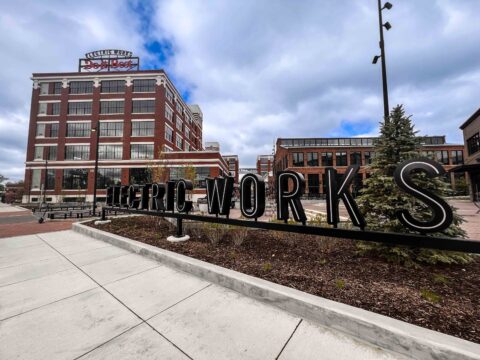Top Story
RFP0742-062923 Nimco Property-A Development Opportunity (Nashua, New Hampshire)
The City of Nashua, New Hampshire invites qualified developers to submit proposals for redevelopment of a City-owned parcel of land.
Using Fort Wayne’s Electric Works redevelopment project as a case study, this Advisory Services panel focused on creating a national model for involving underrepresented businesses and communities in large-scale urban development projects.

Photo By ULI
The panel was led by chair Fernando Costa, Assistant City Manager, City of Fort Worth; TX, Dr. Lorin Carter, Founder & CEO C-Suite Equity Consulting, Dallas TX; Faron A. Hill, President, Peregrine Oak, Peachtree Corners, GA; Jill Hunger, Assistant Director, Arlington Department of Community Planning, Housing, and Development, Arlington, VA; Joanna Mack, Associate, Salazar Architect, West Sacrament, CA; Taylor Ralph, Founder and President / Team Integration Lead, REAL Building Consultants, Tampa, FL; Dawveed Scully, Managing Deputy Commissioner, Chicago Department of Planning and Development, Chicago, IL. ULI Staff Kelsey Steffen, Barbra Gustis, and Brittney Gilardian supported the panel.
Date: April 30 – May 5, 2023
Location: Fort Wayne, IN
Sponsors: Ancora Partners and Community Foundation of Greater Fort Wayne
Panel Chair: Fernando Costa
Restoration and adaptive reuse of the historic Electric Works campus presents Fort Wayne with an exceptional opportunity not only to create jobs, attract investment, and expand the city’s tax base, but also to use this redevelopment as a much-needed catalyst for involving underrepresented businesses and communities in the city’s growing economy. Ancora Partners and the Community Foundation of Greater Fort Wayne have demonstrated a strong desire to involve underrepresented businesses and communities in all aspects of the Electric Works project.
The panel discusses three specific issues: how local planning activities can include all stakeholders in decisions that affect them, how the Electric Works project can spread the benefits of revitalization equitably among interested businesses, and how the project can support diverse communities beyond the Electric Works campus. The panel also discusses how the Electric Works project can help ULI to create a template for advancing diversity, equity, and inclusion in other large-scale development projects, both in Fort Wayne and in communities across the country.
The panel presented various conclusions and recommendations relating to market analysis, inclusive planning, business equity, equitable development, and the creation of a local and national model. We summarize these results by responding briefly to the sponsors’ three questions:
The community can enable the private sector to expand these opportunities by being more intentional and more explicit about assisting underrepresented businesses in competing for jobs and contracts. Fort Wayne has a large and diverse workforce, and an untapped supply of certified and uncertified XBE businesses, but their historic underrepresentation in the city’s economy will require more affirmative efforts to level the playing field and overcome the effects of past discrimination. This challenge is not unique to Fort Wayne, as similar issues affect virtually all large and mid-sized cities across the country. City and county governments, foundations, chambers of commerce, economic development agencies, and real estate developers all have roles to play in addressing the challenge.
Electric Works can become a model of such inclusiveness by improving its communications and outreach to the city’s diverse residents, many of whom do not feel welcome at Electric Works today. With approximately 60 percent of the project’s first-phase capital funding coming from various public sources, all residents have a right to view Electric Works as a gathering place where they can interact with others and enjoy the city’s cultural diversity.
The Electric Works project has already taken the first step toward becoming such an example by commissioning this ULI study and by providing us with a basis upon which to extend the lessons learned here to other communities. ULI intends to employ all of its resources – including its DEI program, district councils, product councils, learning program, and multidisciplinary membership – to advance this initiative.
There are three keys to Fort Wayne’s success in implementing the panel’s advice. First, civic leaders should assign priority to restoring trust in the city’s leadership by ensuring that public participation is not only extensive but also meaningful and effective, and by ensuring that the representatives of diverse communities are able to participate directly in decisions that affect them. Second, developers should become more proficient in articulating the business case for diversity, equity, and inclusion, helping others to understand how such policies and practices can reduce risks and increase returns on investment. Finally, business leaders should measure the results of their DEI efforts, and they should thereby hold each other accountable for the city’s progress toward these goals.
Have a land use challenge? Contact our team!
Don’t have an account? Sign up for a ULI guest account.